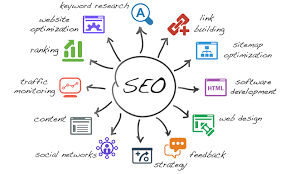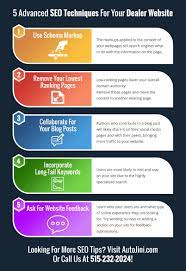Digital Marketing for Beginners: A Comprehensive Guide to Getting Started
In today’s digital age, having a strong online presence is essential for any business or individual looking to reach a wider audience. Digital marketing has emerged as a powerful tool that allows you to connect with potential customers, build brand awareness, and drive sales. If you’re new to the world of digital marketing, fear not! This comprehensive guide will provide you with the basics to get started.
Understanding Digital Marketing:
Digital marketing encompasses various strategies and channels used to promote products or services online. It includes activities such as search engine optimization (SEO), social media marketing, email marketing, content creation, and more. The goal is to attract and engage your target audience through digital platforms.
Defining Your Goals:
Before diving into digital marketing, it’s crucial to define your goals. What do you want to achieve? Is it increased website traffic, higher conversion rates, or brand recognition? Setting clear objectives will help you tailor your strategies accordingly.
Building a Website:
A well-designed website serves as the foundation of your digital presence. Ensure that it is user-friendly, visually appealing, and optimized for search engines. Your website should reflect your brand identity and provide relevant information about your products or services.
Search Engine Optimization (SEO):
SEO helps improve your website’s visibility on search engine results pages (SERPs). By optimizing your site’s content and structure according to search engine guidelines, you can increase organic traffic and rank higher in relevant searches.
Content Creation:
Creating high-quality content is key to engaging your audience and establishing yourself as an authority in your industry. Develop a content strategy that includes blog posts, articles, videos, infographics, or podcasts that resonate with your target audience.
Social Media Marketing:
Social media platforms are excellent tools for building brand awareness and connecting with potential customers. Identify the platforms where your target audience spends their time and create compelling content that encourages engagement and sharing.
Email Marketing:
Email marketing remains one of the most effective ways to nurture leads and drive conversions. Build an email list by offering valuable content or incentives, and send targeted emails to your subscribers to keep them informed about your latest offerings or promotions.
Paid Advertising:
Paid advertising allows you to reach a broader audience quickly. Platforms like Google Ads, social media ads, or display networks offer various targeting options to ensure your ads are seen by the right people at the right time. Set a budget and monitor your campaigns closely to maximize results.
Analytics and Tracking:
To measure the success of your digital marketing efforts, it’s essential to track key metrics using tools like Google Analytics. Monitor website traffic, conversion rates, click-through rates, and other relevant data to gain insights into what’s working and make informed decisions.
Continuous Learning:
Digital marketing is an ever-evolving field, so it’s crucial to stay updated with industry trends and best practices. Join online communities, attend webinars or workshops, read blogs or books on digital marketing to enhance your knowledge continuously.
Remember, digital marketing is not a one-size-fits-all approach. Experiment with different strategies, analyze results, and adjust accordingly. With dedication, creativity, and consistent effort, you can effectively leverage digital marketing to grow your online presence and achieve your goals.
So why wait? Start implementing these beginner-friendly digital marketing strategies today and embark on an exciting journey towards online success!
Commonly Asked Questions About Digital Marketing for Beginners
- Which type of digital marketing is best for beginners?
- Is digital marketing easy for beginners?
- How to do digital marketing for beginner?
- What are the 4 types of digital marketing?
Which type of digital marketing is best for beginners?
When starting with digital marketing, it’s important to focus on strategies that are beginner-friendly and provide a solid foundation for your online presence. Here are a few types of digital marketing that are often considered best for beginners:
- Search Engine Optimization (SEO): SEO is the process of optimizing your website to rank higher in search engine results pages (SERPs). It involves keyword research, on-page optimization, creating quality content, and building backlinks. SEO is a cost-effective strategy that can drive organic traffic to your website over time.
- Social Media Marketing: Social media platforms like Facebook, Instagram, Twitter, and LinkedIn offer powerful tools for reaching and engaging with your target audience. Start by identifying the platforms where your audience spends their time and create compelling content that encourages interaction and sharing.
- Content Marketing: Content marketing focuses on creating valuable and relevant content to attract and retain a clearly defined audience. This can include blog posts, articles, videos, infographics, or podcasts. By consistently providing useful content, you can establish yourself as an authority in your industry and build trust with your audience.
- Email Marketing: Email marketing allows you to nurture leads and build relationships with potential customers. Start by building an email list through opt-in forms on your website or landing pages. Send targeted emails with valuable information or exclusive offers to keep subscribers engaged and encourage conversions.
- Pay-Per-Click (PPC) Advertising: PPC advertising enables you to display ads on search engines or social media platforms and pay only when someone clicks on your ad. Platforms like Google Ads or Facebook Ads offer user-friendly interfaces with targeting options to reach specific audiences effectively.
Remember that each type of digital marketing has its own benefits and considerations. It’s important to align your chosen strategies with your goals, target audience, budget, and available resources. As you gain experience and confidence, you can explore other types of digital marketing that may be suitable for your specific needs.
Is digital marketing easy for beginners?
Digital marketing can seem overwhelming for beginners, but with the right guidance and resources, it is definitely achievable. While it may require some time and effort to understand the various concepts and strategies, digital marketing offers a wide range of tools and resources that make it accessible to beginners. Here are a few factors to consider:
- Learning Curve: Like any new skill, digital marketing has a learning curve. It involves understanding different channels, platforms, and techniques. However, there are numerous online courses, tutorials, and guides available that can help beginners grasp the fundamentals.
- Flexibility: Digital marketing allows for flexibility in terms of budgeting and targeting. Beginners can start small with their campaigns and gradually scale up as they gain more experience and confidence.
- Resources: There are numerous free or low-cost resources available online that provide valuable insights into digital marketing strategies. These resources include blogs, forums, podcasts, webinars, and eBooks that cater specifically to beginners.
- Analytics Tools: Digital marketing provides robust analytics tools such as Google Analytics that help track the performance of campaigns in real-time. This data-driven approach allows beginners to monitor their progress and make data-backed decisions.
- Community Support: The digital marketing community is vast and supportive. There are forums, social media groups, and communities where beginners can connect with experienced professionals who are willing to share their knowledge and offer guidance.
While digital marketing may not be effortless initially, it becomes easier as you gain experience through hands-on practice and continuous learning. With dedication and persistence, beginners can develop the skills needed to create effective digital marketing strategies that drive results.
Remember that every successful digital marketer started as a beginner at some point. Embrace the learning process, be open to experimentation, stay updated with industry trends, and seek guidance when needed.
How to do digital marketing for beginner?
Digital marketing can seem overwhelming for beginners, but with a step-by-step approach, you can navigate the digital landscape effectively. Here’s a simplified guide to help you get started:
- Define Your Goals: Determine what you want to achieve with your digital marketing efforts. Do you want to increase website traffic, generate leads, or boost sales? Setting clear goals will help guide your strategies.
- Know Your Target Audience: Identify your target audience and understand their demographics, interests, and online behavior. This information will help you tailor your marketing messages and choose the most suitable platforms.
- Build a Website or Landing Page: Establish an online presence by creating a user-friendly website or landing page that reflects your brand identity. Ensure it is visually appealing, easy to navigate, and optimized for search engines.
- Search Engine Optimization (SEO): Optimize your website content using relevant keywords to improve its visibility on search engine results pages (SERPs). Focus on meta tags, headings, URLs, and high-quality content that provides value to users.
- Content Creation: Develop a content strategy that aligns with your goals and resonates with your target audience. Create blog posts, articles, videos, infographics, or podcasts that educate, entertain or inspire your audience.
- Social Media Marketing: Choose social media platforms where your target audience is active and create engaging content tailored to each platform’s unique features. Interact with users, respond to comments/messages promptly, and use relevant hashtags.
- Email Marketing: Build an email list by offering valuable content or incentives on your website or through social media channels. Send targeted emails to nurture leads and keep subscribers informed about news, promotions, or exclusive offers.
- Paid Advertising: Consider running paid advertising campaigns on platforms like Google Ads or social media ads to reach a wider audience quickly. Set a budget and define specific targeting criteria based on demographics or user interests.
- Monitor Analytics: Use tools like Google Analytics to track website traffic, user behavior, conversion rates, and other key metrics. Analyze the data to gain insights into what’s working and make data-driven decisions for future campaigns.
- Continuous Learning: Digital marketing is constantly evolving, so stay updated with industry trends, best practices, and new tools. Engage in online communities, attend webinars or workshops, read blogs or books on digital marketing to enhance your knowledge.
Remember that digital marketing requires experimentation and adaptation. Be open to trying new strategies, measuring results, and making adjustments based on feedback. With time and persistence, you’ll gain valuable experience and see the positive impact of your digital marketing efforts.
If you’re unsure about specific tactics or need further guidance, consider consulting with a professional or taking online courses specializing in digital marketing for beginners.
What are the 4 types of digital marketing?
The four types of digital marketing are:
- Search Engine Optimization (SEO): SEO involves optimizing your website and its content to improve its visibility in search engine results. By using relevant keywords, creating high-quality content, and optimizing your website’s structure, you can increase organic (unpaid) traffic to your site.
- Social Media Marketing: This type of digital marketing focuses on promoting your brand and engaging with your target audience through social media platforms like Facebook, Instagram, Twitter, LinkedIn, and others. It involves creating compelling content, running targeted ads, and building an online community to increase brand awareness and drive traffic to your website.
- Pay-Per-Click Advertising (PPC): PPC advertising allows you to display ads on search engine results pages or other websites and pay only when a user clicks on your ad. Platforms like Google Ads or Bing Ads enable you to set a budget, choose relevant keywords or demographics, and create compelling ad copy to reach your target audience effectively.
- Content Marketing: Content marketing revolves around creating valuable and relevant content that attracts and engages your target audience. This can include blog posts, articles, videos, infographics, podcasts, or e-books that provide useful information or entertainment while subtly promoting your products or services. Content marketing helps build brand authority and establish long-term relationships with customers.
These four types of digital marketing work together synergistically to create a comprehensive online marketing strategy. By leveraging the strengths of each type and tailoring them to suit your business goals and target audience, you can maximize the effectiveness of your digital marketing efforts.




